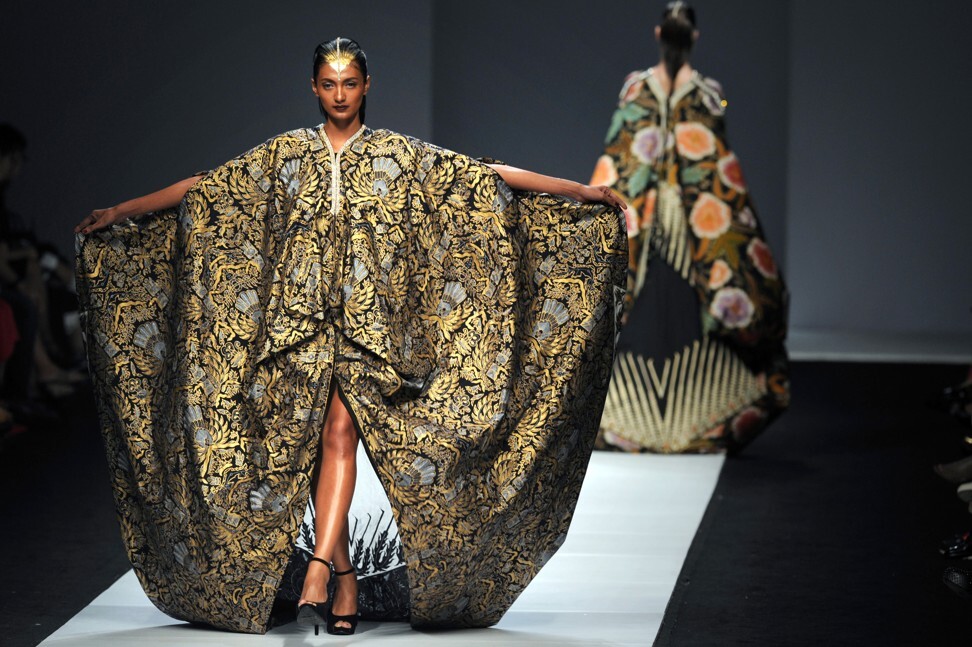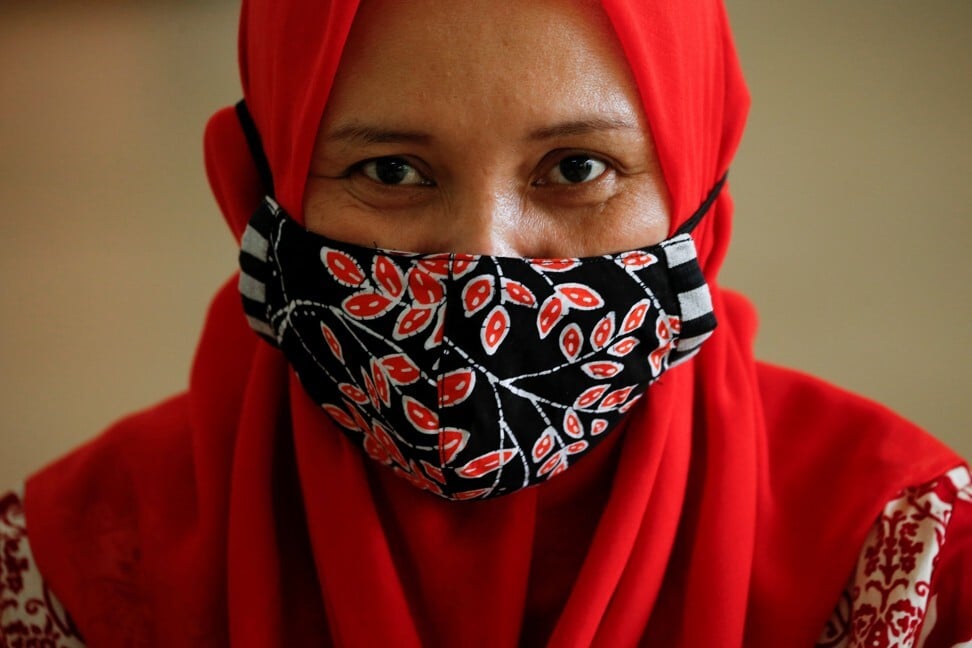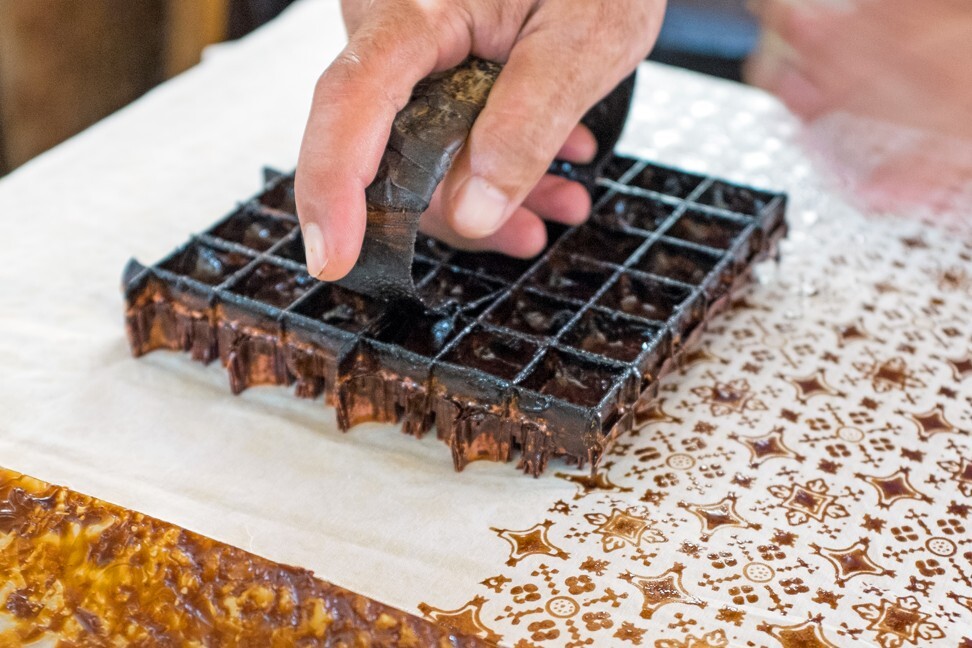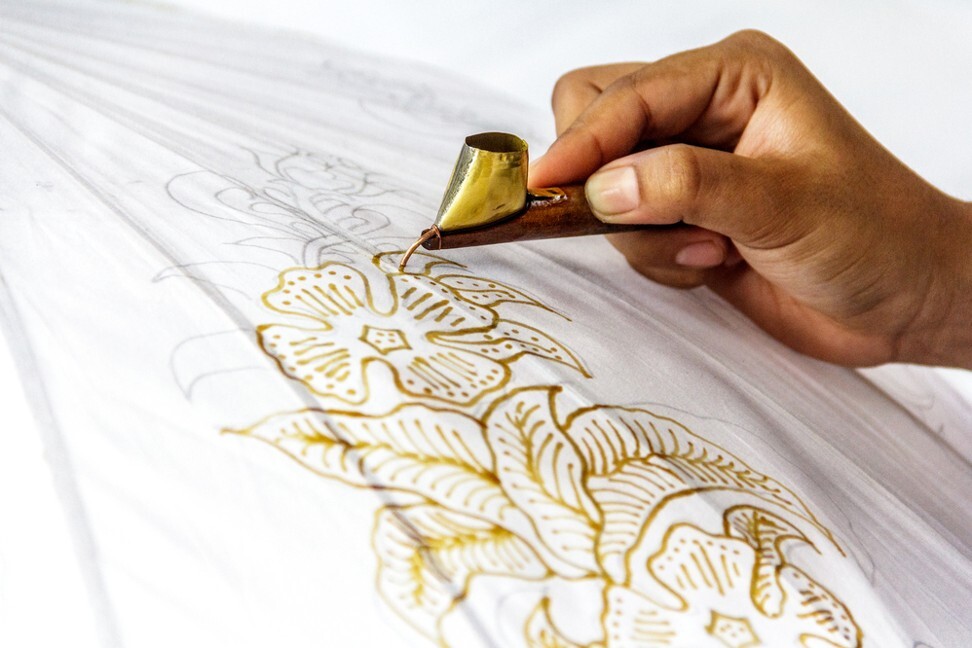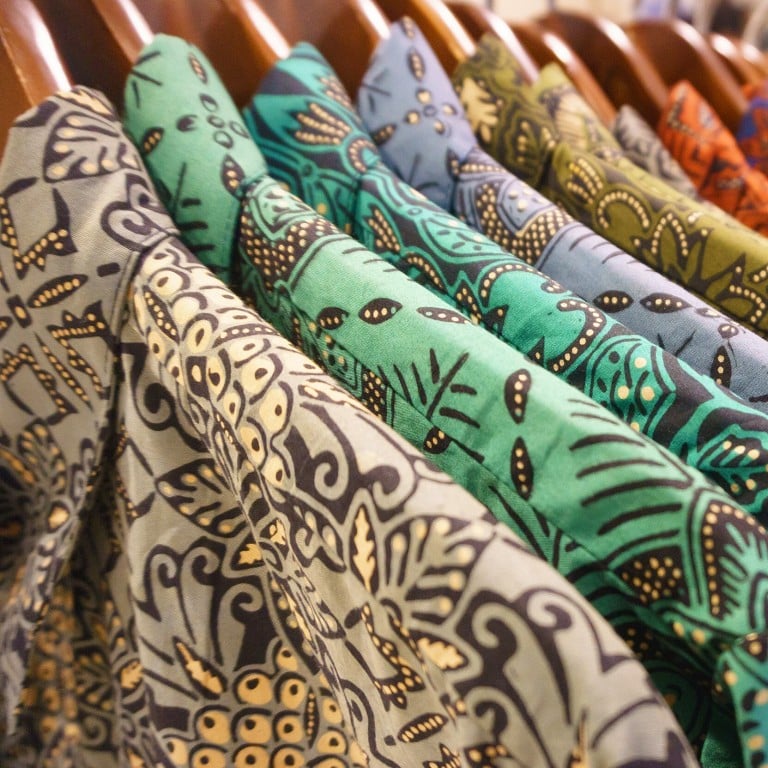
‘China, master copycat’: uproar in Indonesia at Xinhua’s batik claim
- Xinhua released a video saying batik is a traditional craft ‘common among ethnic groups in China’, sparking protests by Indonesians on social media
- There are long-standing disputes over the origins of food and traditions such as batik, rendang and nasi lemak among Malaysia, Indonesia and Singapore
The post on Twitter, which came with a 49-second video, said the craft was practised by “ethnic minority groups living in Guizhou and Yunnan”, referring to two of China’s southwestern provinces.
It drew cries of cultural appropriation from hundreds of Indonesians on social media. The video also prompted Indonesia’s foreign ministry to suggest that a correction was needed, after which Xinhua made another post describing batik as “a word with Indonesian origin that refers to a wax-resist dyeing technique practised in many parts of the world”.
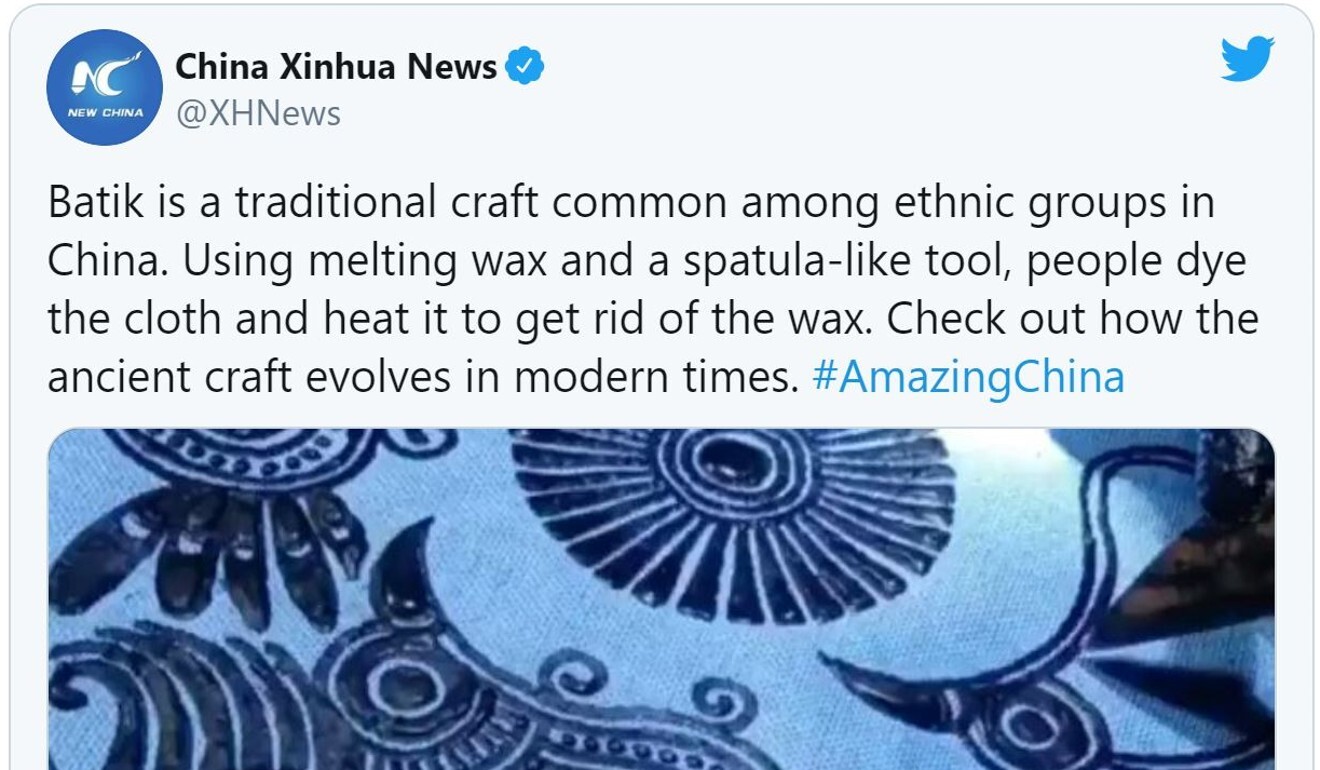
Teuku Faizasyah, a spokesman from Indonesia’s foreign ministry, said one of his colleagues informally informed Xinhua that the word batik was rooted in the Javanese tradition in batik-making techniques within the Indonesian culture.
“Xinhua admitted the mistake for not knowing that the word batik comes from the Javanese vocabulary. Moreover, the Indonesian batik has also been recognised by Unesco,” he said. The United Nations’ educational, scientific and cultural organisation inscribed Indonesia’s batik craft in 2009 as a form of intangible heritage.
Indonesians ... always struggle for our international contributions to the world. We’re really ready to stage a ‘rendang war’. It also applies to this batik thing
In 2009, disputes over ownership of batik and other issues sent Indonesia-Malaysia ties to their lowest point. As anger against Malaysians grew in Indonesia, Malaysia’s defence minister Ahmad Zahid Hamidi sought to ease tensions by making clear the countries were not on the brink of war.
Nasi lemak: is it from Malaysia or Singapore?
The issue of batik has been an especially touchy subject for Indonesia, which counts batik designs as a core part of its creative economy. In an opinion piece published in The Jakarta Post last month, one official said more than half of Indonesia’s creative economy exports came from the fashion industry, with batik clothing and hijab, or Muslim headscarves, among the major contributors.
To promote the fabric, the Indonesian government designated October 2 as Batik Day following Unesco’s declaration, while also encouraging people to wear it more frequently. On Fridays, all civil servants are encouraged to wear batik.
ORIGINS OF THE WORD BATIK
Dwi Woro Retno Mastuti, lecturer at the Javanese Studies Programme of the University of Indonesia, said the word batik comes from the Javanese word of ambatik – of which amba means to write, and tik means to make a mark using canting, a pen-like tool used by batik artisans to apply hot liquid wax on the cloth.
Mastuti said in the country, batik is referred to as a “technique of making patterns” using a canting or a stamp, dyeing the cloth and blocking the wax so the fabric would not be mixed with other colours when painted on the cloth.
Experts, however, believe that it would be an overstatement for Indonesians to label batik as a purely Indonesian craft, because it has cultural influences from outside the country.
China and Indonesia’s fruitful, complicated relationship 70 years on
Agni Malagina, an independent researcher on Chinese-Indonesian affairs, said batik in the northern and southern coasts of Indonesia’s major island of Java has “dominant” Chinese influences in its motifs.
One cannot ignore the “influences of batik from” the time of its origins, Malagina said, referring to the time when the country was still ruled by Hindu and Buddhist kingdoms, and the fact that batik also absorbed Chinese and other foreign cultural elements.
On Xinhua’s original post on Sunday, some Indonesians responded with comments including, “China the master of copycat”, and “so after our waters, you wanna claim our culture too?”.
Muhammad Zulfikar Rakhmat, an academic at Universitas Islam Indonesia who also studies China’s foreign policy in Indonesia, noted the outrage against Xinhua came at a time of rising anti-China sentiment in Indonesia.
Dewi Fortuna Anwar, former deputy secretary for political affairs to Indonesia's vice president from 2010 to 2015, said the reaction of Indonesian netizens to the Xinhua tweet could be considered "excessive" as there was a similar textile tradition in China.
But the blowback was understandable given how batik is seen as an integral part of Indonesian identity, said the research professor at the Indonesian Institute of Sciences, adding that Indonesians had a stronger reaction to Malaysia’s claim over rendang.
However, a Chinese academic dismissed the anti-Beijing and anti-Chinese factor, while believing Xinhua’s decision was “probably unintentional” and due to a “loss in translation”, and was then “exacerbated by the fact that the two sides lack sufficient understanding of each other’s culture”.
Kankan Xie, an assistant professor of Southeast Asian studies at Peking University who studies Indonesian historical and contemporary issues, said there was a tendency for many countries to assume all Chinese media “are government-controlled and therefore always representing the ‘official’ attitude”.
Xie acknowledged Xinhua’s usage of the word batik “may have made some Indonesians uncomfortable”.
“In the Indonesian context, cultural heritage is closely related to national pride and the country’s cultural identity,” Xie said. “Following this logic, many people believe that Indonesia is the only legitimate ‘owner’ of batik, and other countries’ claims are thus problematic and unacceptable in the eyes of Indonesian nationalists.”
Entrepreneur Imelda, who declined to give her last name and age, was among those who stated her disapproval to Xinhua’s post on Twitter. “I suggest you claim Covid-19 instead. No country has claimed it till now,” she wrote.
Approached via private message, Imelda said some people might think “my tweet sounds xenophobic”, but added she did not intend to come across that way.
“Indonesians, as people from such a big but non-developed country, always struggle for our international contributions to the world,” Imelda said.
“We’re really ready to stage a ‘rendang war’ or something like that,” she said. “It also applies to this batik thing.”


